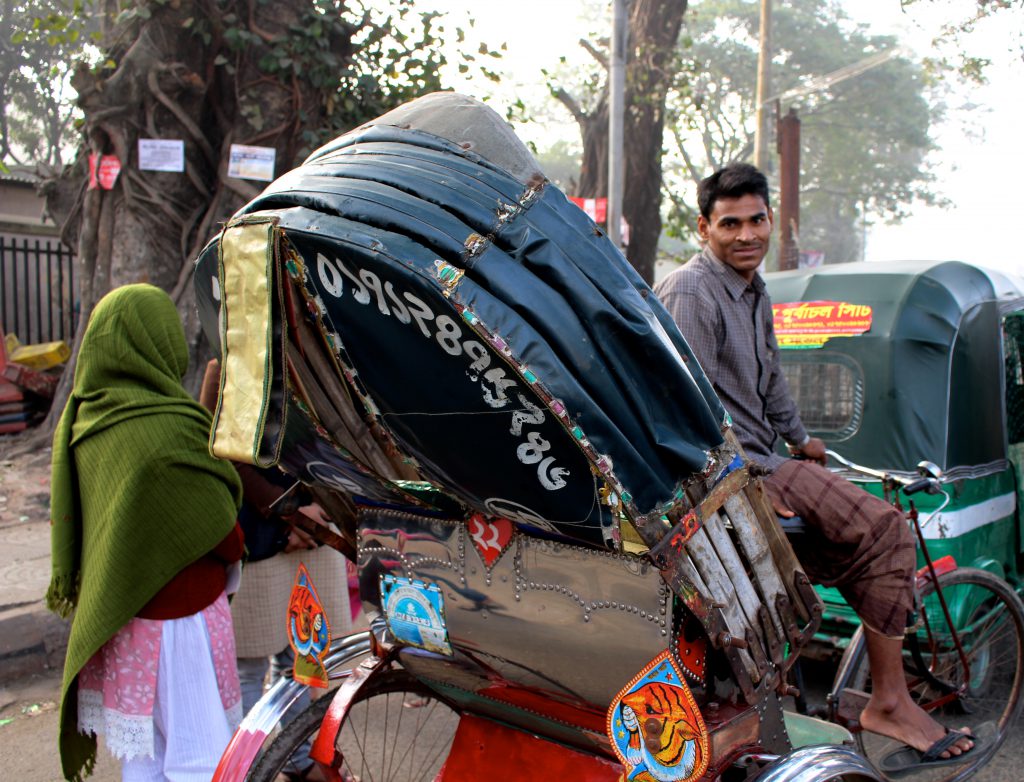Guest post by Jeff Mosenkis of Innovations for Poverty Action. GiveWell’s latest charity recommendations add a new one, “No Lean Season,” which helps hungry rural farmers (so far in Bangladesh) get to cities to find their own employment while they wait for their crops to come in. You can hear the audio of Yale’s Mushfiq Mobarak describing how it went from an idea to one of the most cost-effective charities here. It’s “best of” time of the year: Jobs!: IPA, J-PAL and a bunch of affiliated orgs post jobs here. Evidence Action has a bunch of jobs posted here (including directing the aforementioned No Lean Season). It’s also letter of recommendation season, check yours for gender-biased phrasing here or with the newer version here. A bizarre story and warning for academics going to Denmark.
Topics:
Jeff Mosenkis (IPA) considers the following as important: Crime, Denmark, human rights, International Relations, jobs, John Oliver, Libya, links, mental health, miscellany, news, Research, soda tax, teaching, tobacco
This could be interesting, too:
NewDealdemocrat writes The (totally contradictory) Big Picture
Robert Skidelsky writes Speech in the House of Lords – Conduct Committee
Peter Radford writes My Father’s Disgust
Dean Baker writes The elites’ big lie on inequality
Guest post by Jeff Mosenkis of Innovations for Poverty Action.

- GiveWell’s latest charity recommendations add a new one, “No Lean Season,” which helps hungry rural farmers (so far in Bangladesh) get to cities to find their own employment while they wait for their crops to come in. You can hear the audio of Yale’s Mushfiq Mobarak describing how it went from an idea to one of the most cost-effective charities here.
- It’s “best of” time of the year:
- Jobs!: IPA, J-PAL and a bunch of affiliated orgs post jobs here. Evidence Action has a bunch of jobs posted here (including directing the aforementioned No Lean Season).
- It’s also letter of recommendation season, check yours for gender-biased phrasing here or with the newer version here.
- A bizarre story and warning for academics going to Denmark. An American professor working at a University there is being charged criminally for giving an invited talk to Parliament and tax authorities about her research studying offshore tax havens. Immigration officers have charged Sociologist Brooke Harrington and 14 other academics sharing research with working outside their permits, but it gets better:
Ironically, on the day Harrington learned of her criminal charges, she was notified that she’d received an award for research dissemination from the Danish Society for Education and Business.
- How two CNN journalists went undercover in Libya to expose that migrants being turned back by the EU were being sold as slaves there. (The EU has known of the human rights abuses there for a long time).
- Last year the New Yorker reported that mentally ill prison inmates in Florida are regularly tortured, sometimes to death.
- Compare that to Chicago – America’s largest mental health facility turns out to be Cook County Jail (which has 9000 inmates! That’s 30 percent bigger than the average college). So the Cook County Sheriff appointed clinical psychologist Nneka Jones Tapia as warden. She then began offering treatments to inmates who needed it and the jail is now working with researchers to test a series of programs designed to ease transitions after release.
- Mugabe reportedly offered to trade his wife to stay in power. More on the details of his final days in office. But the best Mugabe story is that in the year 2000 he won the national lottery.
- How the fight for a soda tax in Colombia got ugly (and John Oliver on how cigarette companies are trying to intimidate developing countries who are considering warning labels on cigarettes, h/t Colin Rust).
And if you get frustrated by how long it takes your experimental machine learning code to run, the original creators of the Oregon Trail first person adventure game did it without access to a computer. Using teletype access to a mainframe they did stuff like adjust probability of snow:
The snow probability in the game was defaulted to zero during miles 0 to 950 of the trip. Bill and Paul developed a parabolic formula that, when graphed, produced an upright U-shaped curve covering miles 950 to 2000, with mileage along the X-axis. During each turn through that segment of the trip, the computer generated a random number that was compared to the curve. If the random number fell under the curve, as it often did at the curve’s beginning and end, snow occurred, representing the two mountain ranges. If the number fell above the curve, as it often did during the mileage between the ranges, snow was less likely. Using different curve formulas, this technique was used for several of the game’s variables to produce different event probabilities as a function of trail location.
